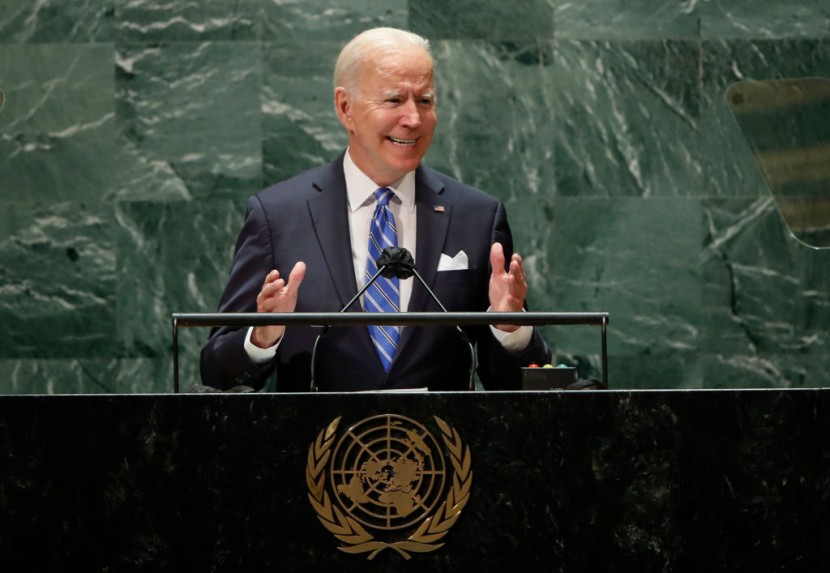
President Joe Biden said Wednesday that the US would purchase 500 million extra doses of Pfizer's COVID-19 vaccine to provide to developing nations across the world, more than doubling the previous pledge to combat the deadly coronavirus.
Biden didn't say how much the purchase would cost American taxpayers, but he did say it would roughly double the number of shots the US has promised to pay for internationally. Biden also linked his proposal to the American military campaign to combat Fascism in the 20th century, calling it a "historic commitment."
The US president also urged other wealthy nations to contribute vaccines "without any political conditions attached." His offer of 500 million doses was matched by the European Union, which increased a previous commitment.
Biden is expected to unveil a plan to help developing countries
The COVAX global vaccine agency will distribute the American vaccinations, and Biden stated that the US would raise financing to help organizations that administer the shots, NY Post reported.
Although more than 5.9 billion doses have been delivered to almost 43% of the world's population, some of the world's poorest nations have yet to reach vaccination rates greater than 2% or 3%, and COVAX has fallen short of almost all of its distribution targets.
Per Daily Mail, it all happened at a White House event, where Biden turned down yet another opportunity to answer questions from the gathered press corps. After British Prime Minister Boris Johnson called on British media, he gave two quick replies in an Oval Office meeting with Johnson.
Biden has steered away from shouted questions at other events, dodging inquiries about the US-French spat and a US drone attack in Afghanistan that killed ten people, including seven children.
Biden is expected to unveil the proposal on Wednesday during a virtual summit of world leaders as part of an effort to improve low immunization rates in poorer countries throughout the world.
In June, the President announced that the United States would purchase and distribute half a billion Pfizer vaccines to 92 low-income countries and the African Union as part of an unprecedented global vaccine program.
To reach Biden's 70 percent objective, the US is now allegedly planning to double that amount and purchase an extra half-billion shots. However, the worldwide target of 70% is a high one and one that the US has fallen far short of.
Activists say Biden' vaccine donation plan is not enough
Activists were outraged by the Biden administration's timeline for sending the newly announced Pfizer doses: Only 300 million of the 1.1 billion doses pledged by the US for donation are likely to be delivered this year.
Scientists have cautioned that the longer the virus travels worldwide, the more hazardous it will become, even for vaccinated individuals in rich countries.
"Purchasing doses for donation sometime next year is helpful, but it does not meaningfully expand the global supply, and it is not justice," said Peter Maybarduk, director of Public Citizen's Access to Medicines Program.
Some experts urged Biden to be more aggressive in pressing American vaccine manufacturers to share their formulas with countries needing COVID-19 vaccines. The administration's plans for allocating the extra funds for vaccination deliveries were not immediately clear.
Some nations have struggled to train and compensate vaccine providers, as well as deliver vaccine doses. Pfizer doses are particularly difficult to store since they must be kept at extremely low temperatures, necessitating the construction of freezers and, in many cases, backup generators.
Supply constraints were the most serious issue for worldwide vaccines earlier this year. Rich countries rushed to obtain dosages while delaying commitments of money and supplies to Covax, the UN-backed global vaccination program.
However, when the production challenges eased, other issues arose. One was clear inequality: more than 5.9 billion vaccines were administered worldwide, yet the vast majority were given in wealthier countries.
Another reason was that poorer nations lacked the financial means to transport shots from airport tarmacs to people's arms. Although the Biden administration's commitments have exceeded those of other Western countries, analysts say other wealthy nations have set an extremely low standard, as per The New York Times.
Related Article : Joe Biden Urges To Thoroughly Investigate Afghanistan Drone Strike; White House Dodges Question If Anyone Should Be Fired








